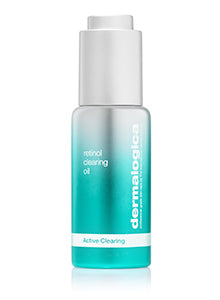Do face oils cause breakouts or acne? Find out if oil in your skin care routine is a friend or foe!
story highlights
- Some face oils can indeed cause skin to break out – but many are highly beneficial.
- Anyone can use face oils; just make sure you’re using the right ones for your specific skin type.
There are many types of oil – and not all of them cause breakouts. In fact, some of them can help keep skin clear and healthy when used correctly. Understanding how oils work with your skin is the key to unlocking their benefits.
oil produced by your skin
Your skin naturally produces sebum, a form of oil that prevents dryness and protects your skin barrier. Sebum itself doesn't cause breakouts. Issues arise when it is combined with breakout-causing bacteria and dead skin cells, clogging your pores. Regular exfoliation and a balanced skincare routine helps prevent this.
occlusive oils and their impact on skin
Occlusive oils are oils that physically block water loss and they’re found in many skin care products. While this can be beneficial for dry skin types, it can also cause breakouts for some people. Petrolatum, Mineral Oil, Beeswax, Lanolin, and Paraffin are some occlusive ingredients to watch out for. Olive Oil and Coconut Oil tend to clog pores too, but some people – particularly those with dry skin - love using them anyway. Everyone’s skin reacts differently to different ingredients and it is important to understand your skin's unique needs and sensitivities.
non-comedogenic oils: skin's best friend
Non-comedogenic oils are known for not clogging pores, making them ideal for breakout-prone skin. One example is Almond Oil, which has high levels of fatty acids and can help moisturise dry skin without clogging pores. Another, Neem Oil, has antibacterial properties and may be even useful as a spot treatment for breakouts.
These oils are excellent options for those looking to explore facial oils in their skincare routine but are worried about potential breakouts.
the benefits of plant-based oils

Lightweight phytolipids (plant-based oils) tend NOT to cause breakouts unless you’re allergic to them. Ingredients such as Rosehip Seed Oil, Squalane Oil, Argan Oil, Jojoba Oil, Sunflower Seed Oil, that can be found in Retinol Clearing Oil, are all excellent at balancing oily skin and helping to prevent skin dehydration (which can lead to more oil production).
Products like the dermalogica Retinol Clearing Oil combine plant-based oils with active ingredients to balance oily skin and prevent dehydration, which can lead to increased sebum production.
how to use face oils to avoid breakouts
To recap the full benefits of face oils consider the following:
- Layer Wisely: Apply oils as the last step in your nighttime skincare routine to lock in moisture.
- Use Sparingly: A few drops are usually enough to cover your face and neck.
- Tailor to Your Skin: Choose oils specifically for your skin type and concerns. For example, lightweight oils like Squalane are ideal for oily skin, while richer oils like Rosehip Seed Oil work well for dry skin.
when to use face oil
Use a lightweight oil in your morning skincare routine to add hydration without interfering with makeup application. In the evening, incorporate a nourishing oil into your nighttime routine to promote overnight skin repair. Apply after treatments like retinol to soothe and hydrate.
face oil benefits: why you should add them to your routine
When used correctly, face oils can balance sebum production, especially for oily skin. They provide deep hydration to prevent dryness, deliver essential nutrients such as vitamins and antioxidants and enhance skin barrier function, protecting against environmental stressors.
anyone can use face oils: find the right face oil for your skin
Even people with oily skin can benefit from face oils! Face oils can help balance skin’s sebum levels by providing necessary moisture, preventing skin from working overtime to produce sebum. Everyone's skin is unique and choosing the right face oil for you can make all the difference. Whether you’re new to facial oils or a pro, pay attention to which ingredients work best for your skin. Read more about which ingredients and facial oils are right for your skin.

